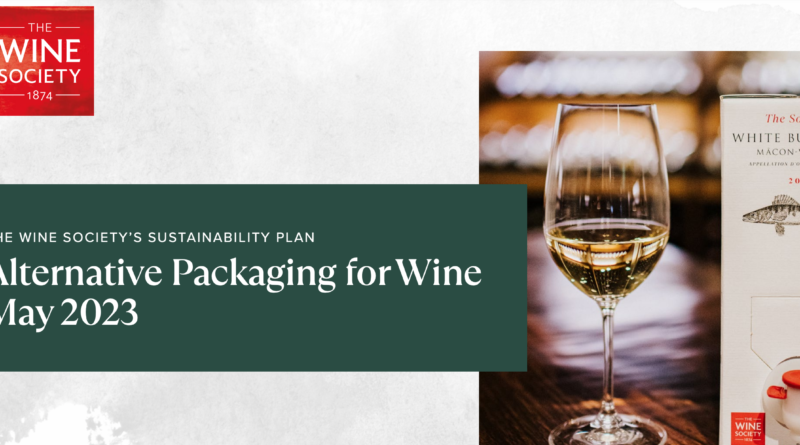Alternative packaging for wine: a new report based on research commissioned by UK retailer The Wine Society
It’s great to see UK retailer The Wine Society get serious about its carbon footprint and recyclability. They have commissioned a research project looking at the potential benefits of alternative packaging. They worked out that the making and disposing of glass wine bottles is responsible for 31% of their carbon footprint as a retailer, and while glass is ideal for wines that are not going to be drunk within a year of release, for many wines there’s no need for the protection glass uniquely offers against oxygen ingress. They worked out that each bottle supplied has a carbon footprint of 1.35 kg of CO2. Lightweighting (using lighter glass bottles) helps, and it’s now possible to get bottles as light as 300 g. But they have found that once they dip below 380 g (still quite a reduction) they lose more to breakages.
The Wine Society has commissioned sustainability advisors 3Keel to look at the performance of alternative packaging formats. There are many complexities to this, including making correspondence between the different categories of environmental impacts, the development of infrastructure for managing -end-of-life of the different formats (for example, some are theoretically recyclable but in practice rarely are) and of course the uncertainties of consumer attitudes and behaviours.

After looking at a range of alternatives to glass bottle, they focused on six for a close review:
- Bag-in-box
- TetraPak-style beverage cartons
- Cans
- Paper bottle with a plastic lining
- Pouch (bag without the box)
- recycled PET bottle (the flat sort offered by Pacamama)
The study is not complete yet, but some initial conclusions have been reached. The Bag-in-Box is a promising option for reducing greenhouse gas (GHG) emissions, and it’s already been accepted by consumers. The Wine Society offers 2.25 litre BiB options and has recently added quite a few more wines to the range in this format. The various 75 cl options have been trickier. rPET needs significant bottling line modifications with its flat bottles, and there’s only one set up in the UK at the moment. The minimum run is too big for The Wine Society. It does offer the promise of significant GHG reductions and is recyclable without any separation of components, unlike the paper bottle, which must be dismantled as part of recycling. The paper bottle also offers challenges in the bottling process.
The Wine Society say they are following the adoption of cans with interest, but because these are 250 ml or less they are more popular with impulse or on-the-go purchase situations, which is not their forte.
For BiB, the bag and tap require specialist recycling. So they are working with a company called Enval to facilitate this, and soon customers will be able to order postage-paid envelopes for recycling five bags and taps at a time.
The full report is here.




